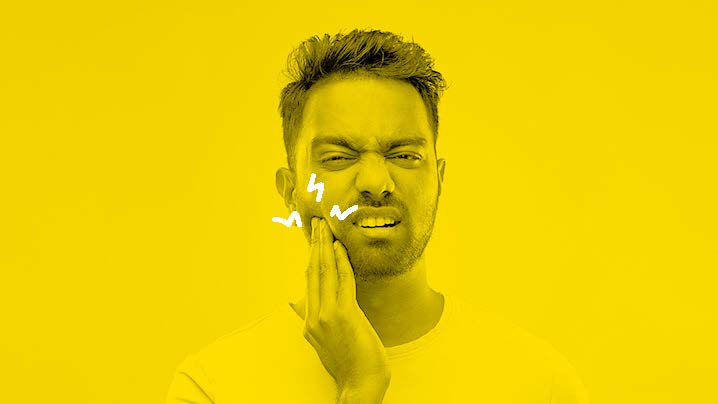Many individuals suffer from chronic jaw pain, and it’s often described as throbbing, discomfort, and aching facial pain along the jawline. And although you may think that jaw pain is related to your teeth, that isn’t always the case. There are many potential causes and identifying the problem will be important to provide the right kind of treatment.
Jaw pain causes may include:
- Abscessed teeth
- Gum infection
- Teeth grinding
- Overbite
- TMJ (temporomandibular joint dysfunction)
- Trauma
- Other medical issues (headaches, ear infection, cysts, infections, tumors, conditions).
So, what can you do about it? First, to find the cause of your jaw problem; visiting your dentist is a good place to start. Schedule your appointment right away to ask your dentist about potential causes and solutions.
For example, if you have oral issues like decayed teeth, infection, or abscesses, then your dentist will need to provide treatment by performing a root canal, filling, antibiotics and/or extraction(s).
If your jaw pain is from a severe overbite (when the upper front teeth overlap with your lower front teeth) there are several treatment options that include braces, spacers, retainers, teeth removal and surgery. If TMJ is the issue, it may be treated with medication, anti-inflammatory drugs and/or surgery.
If your jaw pain is from teeth grinding (also known as bruxism) or clenching, without addressing the problem early on, it can damage your teeth and increase risk of TMJ. As bruxism weakens your tooth structures it can lead to loose, painful or fractured teeth and also damage fillings and crowns. Teeth grinding can be caused by stress, anxiety, sleep disorders and abnormal bites. If stress is the issue, you may need to work your health provider to find a way to relax. Meditation and counseling are great ways to reduce anxiety and may be worth a try. Your dentist can also fit you for a mouth guard that you will wear at night.
And lastly, if there is another medical condition that may be causing your dental pain, your dentist will be able to refer you to the appropriate physician for treatment. Again, whatever the cause is, it’s important to not only treat the symptom, but to get to the root of the cause. And your dentist is a great place to start.
Need to find a provider near you? Click here.

